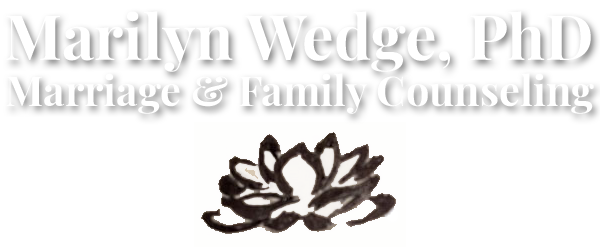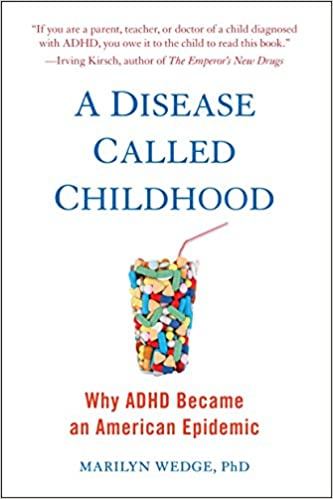Reviews of A Disease Called Childhood
Author and longtime family therapist Wedge’s industry-shaking 2012 Psychology Today article “Why French Kids Don’t Have ADHD” challenged the American psychiatric industry to reframe the way classic ADHD-associative behaviors are understood. The article also questioned whether medication should be the first approach to treating it and asked why diagnosis rates in America so greatly differed from those in European cultures. To Wedge, ADHD is not biological but psychosocial; in the U.S., it has become substantially “overdiagnosed and overmedicated” with powerful pharmaceutical stimulants prescribed to children. With direct aim at parents open to alternative therapies, the author discusses dietary (food dyes, processed sugar), situational and stressful familial causes for behavioral disruptions and offers nonmedical interventional treatment plans—e.g., stricter parenting, educational reform and even exercise—to counter behaviors traditionally deemed as ADHD markers.
She makes impressive use of referential cases from her own practice, yet instead of the more typical rapid-fire diagnosis, Wedge, while agreeing that stimulant drugs like Adderall and Ritalin do work, insists on exploring the drug-free avenues available to children instead. She is concerned about the changing landscapes and parameters of what “normal childhood” behaviors are and that those falling outside of them are rashly diagnosed and swiftly buffered with psychiatric medication. Chapters detailing how modern medicine came to the conclusions it has about ADHD, the pharmaceutical industry’s influential omnipresence in medicine, rickety research studies and why diagnosis rates continue to mushroom are consistently startling and distressing. While Wedge offers options not every medical professional or concerned parent will swallow willingly, her affable approach and compassionate universal concern for the wellness of children are evident throughout.
In an important read for open-minded parents, Wedge offers fresh perspectives and practical approaches to the continuing ADHD conundrum.
Part exposé, part advice manual, this accessible text rails against the proliferation of Attention Deficient Hyperactivity Disorder diagnoses in American children. A family therapist and author of Pills Are Not for Preschoolers, Wedge argues that “ADHD is neither an unnatural condition of childhood, nor illness that requires medication” but a “normal childhood response to stressful situations.” However, due to shifts in the last 50 years—including the reconceptualization of ADHD as a biological disorder, a pharmaceutical industry with the “dream of medicating large numbers of healthy children with amphetamines,” and parents and educators eager for a quick fix for troublesome tots—typical childhood behaviors have been pathologized and deemed worthy of heavy-duty medication. Wedge notes tartly that “society today would label [Huck Finn and Tom Sawyer] ‘mentally disabled’ and give them drugs to make them behave like normal children.” She offers parents a range of environmental solutions for modifying behavior, which include trading in “fast-paced cartoons” for PBS, maintaining a positive home environment, and carrying out dietary changes such as avoiding food dyes. Buttressing her arguments with patient case studies and descriptions of positive outcomes from social interventions in European countries (particularly France and its envy-inducing bébés), Wedge has produced an eye-opening and compelling manifesto. (Mar.)
Feingold Association of the United States
March, 2015 Newsletter
In a sea of books on ADHD, this one stands out. Dr. Wedge has done her homework. In 2012, her article “Why French Kids Don’t Have ADHD” was published in Psychology Today. It went viral and is still having a huge impact…”I believe that psychiatric medications only conceal, rather than treat, the real cause of a child’s troubles.” What follows is a well-documented account of how and why a country that protects its children with sunscreen and car seats promotes the use of powerful drugs that are often unnecessary. It’s a tale of money and pseudo-science. It is also a chronicle of betrayal by many of the government agencies, politicians, doctors and educators in whom parents have placed their trust…A Disease Called Childhood is rich with practical information, common sense, and a clear description of how we got into this mess. The book is both scholarly and easily understood by the layman.
To read the entire review on page 2 of the Feingold newsletter, click here
Phillip Hickey, Ph.D. Behaviorism and Mental Health Website
Avery, a member of Penguin Group USA, has recently published A Disease Called Childhood, by Marilyn Wedge. Marilyn has a PhD in psychology and works as a family therapist.
In 2014, fully 11% of American children had received a “diagnosis” of attention deficit hyperactivity disorder (ADHD). It is widely believed by these children, their parents, the press, the public, and government agencies, that this loose collection of vaguely defined behaviors constitutes an illness – specifically a chemical imbalance in the brain, which is corrected by stimulant drugs.
Dr. Wedge’s book is a timely reminder that the “science” on which this perspective rests is highly questionable, and that there are alternative perspectives and alternative ways of working with children.
Here are some quotes from the book:
“From my point of view, behavioral problems such as aggression, disobedience, or other behaviors commonly associated with ADHD, such as inattention and hyperactivity, are signs that something is wrong in a child’s life – either extreme trauma, like abuse or poverty, or something more typical, like a lack of discipline or a difficult family transition. Children are not fully developed mentally or behaviorally.” (p xii)
“There is another aspect of ADHD that worries me. As stimulants have come to be prescribed for ever larger numbers of children, our society’s very perception of childhood has changed. Instead of seeing ADHD-type behaviors as part of the spectrum of normal childhood that most kids eventually grow out of, or as responses to bumps or rough patches in a child’s life, we cluster these behaviors into a discrete (and chronic) “illness” or “mental health condition” with clearly defined boundaries. And we are led to believe that this “illness” is rooted in the child’s genetic makeup and requires treatment with psychiatric medication.” (p 17)
“A serious problem for teachers is that an ADHD diagnosis exempts a child from having to take accountability for his behavior.” (p 91)
“Each individual has a unique story that ultimately reveals the true reasons for troubled behavior. A child’s individual story is both a clue to the cause of his troubles and a signpost that guides us to help him.” (p 113)
“And in our medicalized society, deviating from the norm tends to be interpreted to mean there is something “biologically wrong” with the child.” (p 123)
“Using medication to suppress the life story of a child who is suffering from trauma subjects him to yet another form of maltreatment.” (p 137)
“If we realize that children can be overactive and impulsive for any number of reasons, we can avoid reducing their behavior to a simplistic diagnosis of ADHD.” (p 195)
“When parents provide limits and don’t give in to whining and screaming, children learn patience. They learn to tolerate a little bit of frustration, which is an important skill in life. Living with structure from an early age, children find comfort in rules, and parents naturally maintain and evolve these rules as the child develops.” (p 202)
“Medical researchers have not yet found a biochemical cause for ADHD on which they agree. Despite sixty years of heavily-funded research, there is no laboratory test that indicates the presence or absence of ADHD in a child.” (p 217)
“The brain has become the scapegoat for all sorts of childhood problems.” (p 218)
A Disease Called Childhood is a carefully researched and highly readable book. The author outlines the history of the ADHD “diagnosis”, and draws attention to the flawed research, and questionable promotional tactics that have spuriously pathologized and drugged millions of children, not only here in the US, but also overseas.
Marilyn Wedge draws unstintingly, and with evident compassion, from her wealth of professional experience, and stresses the supreme importance of getting to know our children and providing the love and structure that they so desperately need.
I strongly recommend this book for parents, teachers, and physicians who write prescriptions for this so-called illness. The book will also be helpful for anyone who is concerned about the extent to which pharma-psychiatry is systematically pathologizing human existence.
Disclosure: I have no financial links to this book or to any books/materials endorsed on this site.



